Dagstuhl-Seminar 19411
Social Agents for Teamwork and Group Interactions
( 06. Oct – 11. Oct, 2019 )
Permalink
Organisatoren
- Elisabeth André (Universität Augsburg, DE)
- Ana Paiva (INESC-ID - Porto Salvo, PT)
- Selma Šabanovic (Indiana University - Bloomington, US)
- Julie Shah (MIT - Cambridge, US)
Kontakt
- Shida Kunz (für wissenschaftliche Fragen)
- Jutka Gasiorowski (für administrative Fragen)
Programm
As artificial agents and social robots become more prominent in our lives, they will also increasingly become parts of the groups and teams people spend much of their time in. The objective of this Dagstuhl Seminar is to explore and discuss theories, methods, and techniques for building embodied social agents (including robots) that can operate in groups as members of a mixed team consisting of humans and agents. Recent advances in AI, and particularly in conversational agents, are likely to lead to an increased placement of agents in groups, covering a variety of application scenarios including healthcare, education, the workplace, and the home. Platforms such as Amazon Echo, Google Home, and new social robots such as Nao, Pepper, and Aibo facilitate such placement. Studies with robots in open-ended environments, including homes and public spaces, also suggest that people often engage with robots in such contexts in groups, rather than just individually. Yet, existing research on human-agent interaction and human-robot interaction so far focuses mostly on one-on-one interactions between a human and a social agent. To stimulate growing research in settings where one or more humans interact with multiple agents or robots, this seminar focuses on human-agent communication, interaction, and teamwork in groups. As such, we will discuss how agents shape the dynamics of groups; how agents and robots are able to perceive other members of a group and how they relate to each other; and how to move from one-to-one interactions to multi-party interactions of agents and humans in groups and teams. By bringing together researchers from different communities, such as human-robot interaction, multi-agent systems, social psychology, and organizational studies, we aim to foster discussion that will generate common ground and new approaches in this interdisciplinary area. While this new domain of inquiry relies on existing research at the intersection between AI, robotics, and the social sciences, our aim is to highlight open questions that current work has not sufficiently addressed.
Our discussion will be guided, though not limited, by the following questions:
- What design principles need to be considered for the creation of robots and agents to act in groups and teams?
- What kind of cognitive capabilities do agents and robots need to have when they interact in groups composed of other robots and people?
- How should agents and robots perceive the other members of a group, and how does the problem of inter- and intragroup perception differ from one-to-one interactions? What types of social behaviors and expressions are necessary for group- or team-aware robots?
- How do agents shape the dynamics of groups in existing social settings?
- How can robots improve the performance of work groups and teams?
- How can an agent or robot’s behavior affect how humans interact with each other in heterogeneous groups?
- What are the social and ethical implications of placing social agents in teams with humans?
- What datasets and other resources (e.g. theories, concepts, and methods) are available to build agent behaviors for group settings?
 Elisabeth André, Ana Paiva, Julie Shah, and Selma Šabanovic
Elisabeth André, Ana Paiva, Julie Shah, and Selma Šabanovic
As artificial agents and social robots become more prominent in our lives, they will also increasingly become parts of the groups and teams in which people spend much of their time. The objective of this Dagstuhl Seminar was to explore and discuss theories, methods, and techniques for building embodied social agents (including robots) that can operate in groups as members of a mixed team consisting of humans and agents. Recent advances in AI, and particularly in conversational agents, are likely to lead to an increased placement of agents in groups, covering a variety of application scenarios including healthcare, education, the workplace, and the home. Platforms such as Amazon Echo, Google Home, and new social robots such as Nao, Pepper, and Aibo facilitate such placement. Studies with robots in open-ended environments, including homes and public spaces, also suggest that people often engage with robots in such contexts in groups, rather than just individually. Yet, existing research on human-agent interaction and human-robot interaction so far focuses mostly on one-on-one interactions between a human and a social agent. To stimulate growing research in settings where one or more humans interact with multiple agents or robots, this seminar focused on human-agent communication, interaction, and teamwork in groups. As such, we discussed how agents shape the dynamics of groups, how agents and robots are able to perceive other members of a group and how they relate to each other, and how to move from one-to-one interactions to multi-party interactions of agents and humans in groups and teams. By bringing together researchers from different communities, such as human-robot interaction, multi-agent systems, social psychology, and organizational studies, we aim to generate common ground and new approaches in this interdisciplinary area. While this new domain of inquiry relies on existing research at the intersection between AI, robotics, and the social sciences, our aim is to highlight open questions that current work has not sufficiently addressed.
 Elisabeth André, Ana Paiva, Julie Shah, and Selma Šabanovic
Elisabeth André, Ana Paiva, Julie Shah, and Selma Šabanovic
- Patrícia Alves-Oliveira (ISCTE-IUl, INESC-ID - Lisboa, PT & Cornell University - Ithaca, US) [dblp]
- Elisabeth André (Universität Augsburg, DE) [dblp]
- Tony Belpaeme (Ghent University, BE) [dblp]
- Cindy Bethel (Mississippi State University, US) [dblp]
- Merijn Bruijnes (Delft University of Technology, NL) [dblp]
- Filipa Correia (INESC-ID - Porto Salvo, PT) [dblp]
- Mary Ellen Foster (University of Glasgow, GB) [dblp]
- Kobi Gal (University of Edinburgh, GB) [dblp]
- Hatice Gunes (University of Cambridge, GB) [dblp]
- Dirk Heylen (University of Twente, NL) [dblp]
- Sviatlana Höhn (University of Luxembourg, LU) [dblp]
- Malte Jung (Cornell University - Ithaca, US) [dblp]
- James Kennedy (Disney Research - Glendale, US) [dblp]
- Franziska Kirstein (Blue Ocean Robotics - Odense, DK) [dblp]
- Stefan Kopp (Universität Bielefeld, DE) [dblp]
- Iolanda Leite (KTH Royal Institute of Technology - Stockholm, SE) [dblp]
- Andrea Marrella (Sapienza University of Rome, IT) [dblp]
- Samuel Mascarenhas (IST - Lisbon, PT) [dblp]
- Christoforos Mavrogiannis (University of Washington - Seattle, US) [dblp]
- Mark Neerincx (TU Delft, NL) [dblp]
- Catharine Oertel (TU Delft, NL) [dblp]
- Michio Okada (Toyohashi University of Technology, JP) [dblp]
- Ana Paiva (INESC-ID - Porto Salvo, PT) [dblp]
- Simon Parsons (University of Lincoln, GB) [dblp]
- Catherine Pelachaud (Sorbonne University - Paris, FR) [dblp]
- André Tiago Abelho Pereira (KTH Royal Institute of Technology - Stockholm, SE) [dblp]
- Rui Prada (INESC-ID - Porto Salvo, PT) [dblp]
- Laurel Riek (University of California - San Diego, US) [dblp]
- Sarah Sebo (Yale University - New Haven, US) [dblp]
- Julie Shah (MIT - Cambridge, US) [dblp]
- Elaine Short (Tufts University - Medford, US) [dblp]
- Elizabeth Sklar (University of Lincoln, GB) [dblp]
- Marynel Vázquez (Yale University - New Haven, US) [dblp]
- Hannes Högni Vilhjálmsson (Reykjavik University, IS) [dblp]
Klassifikation
- artificial intelligence / robotics
Schlagworte
- Social agents
- social robotics
- multi-agent systems
- human-agent interaction
- groups and teams.

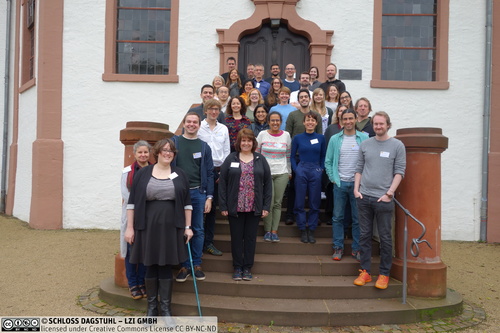
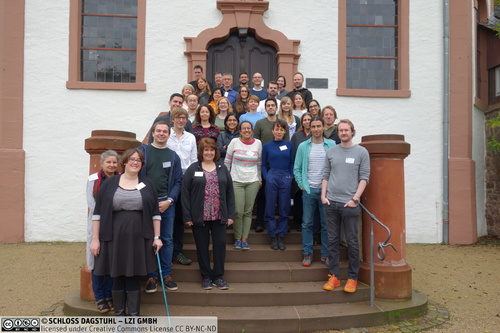
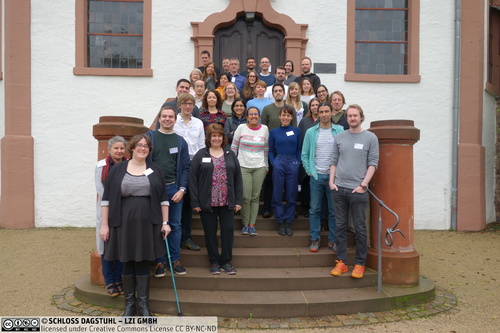
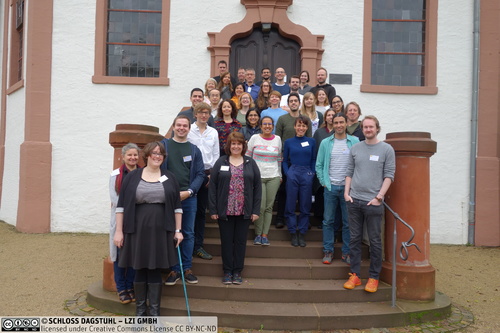
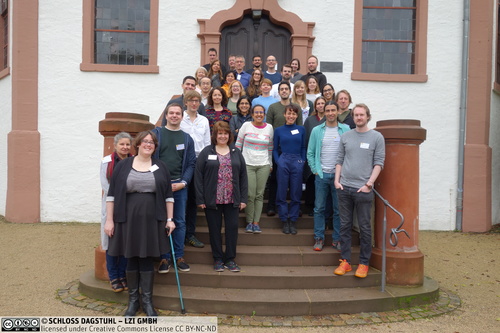
 Creative Commons BY 3.0 DE
Creative Commons BY 3.0 DE
